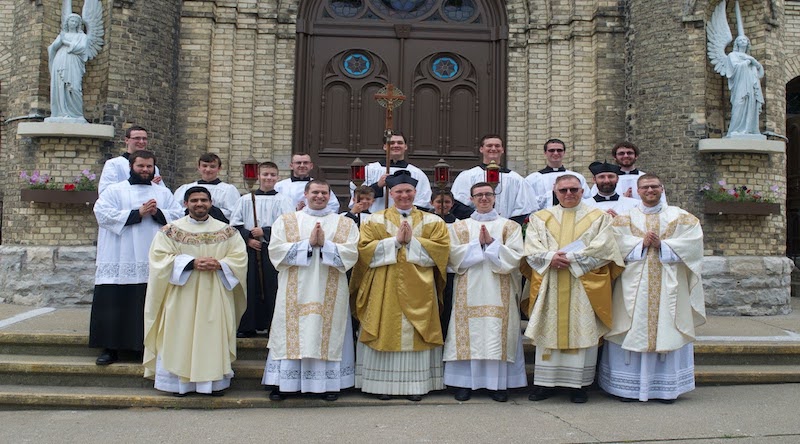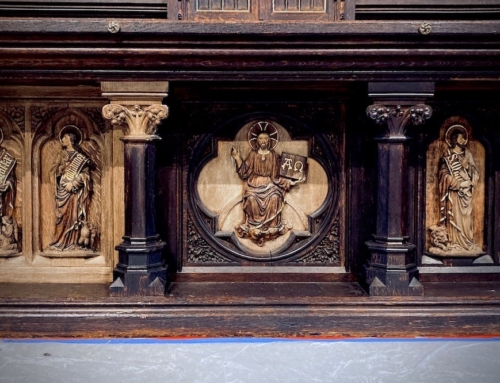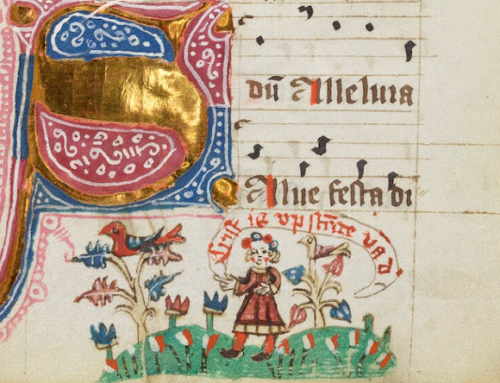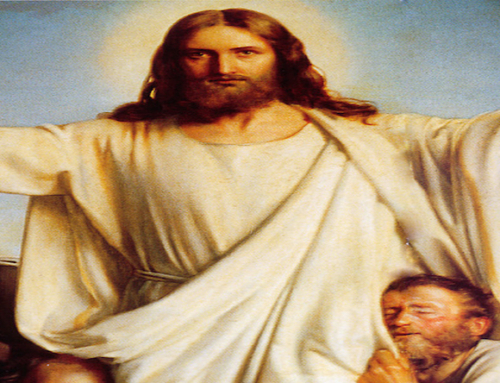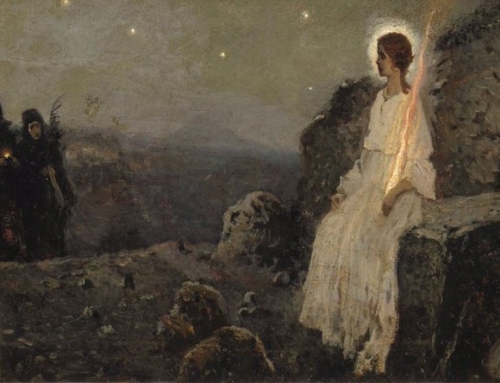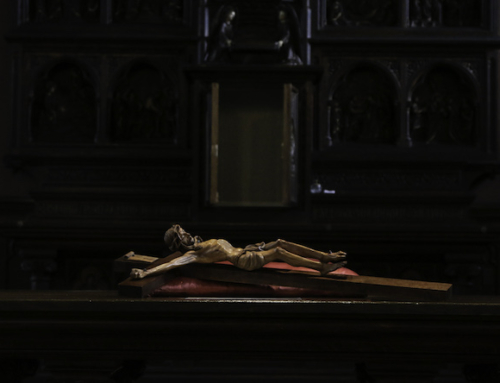It was the morning of Holy Thursday. I had expectations for how the day was going to unfold. The altar boys had gathered at the Church to rehearse for the Mass of the Lord’s Supper later that evening. But, as rehearsal began, I was soon distracted by a thought. I still haven’t finished my homily for the evening. Trying to push this thought aside while preparing for practice, the altar boys simultaneously turned to me and said with confident and eager faces, “Ready, Father?” As we processed down the aisle of the church, another thought intruded. I still haven’t had time to practice the Exsultet with the organist for Saturday. Well, there’s nothing I can do about it now. Lead the altar boys. Practice went forward smoothly until I heard a sequence of sounds: some laughter, a thud, then silence.
I genuflected to the tabernacle and entered the sacristy, only to find several boys with guilty faces. The new paschal candle lay on the floor cracked and unusable. My face was becoming warm and my blood pressure rising when, all of a sudden, I was reminded of something my mother once said to me. Holy Week is the most intense week of the year for priests. After years of working with clergy at the local Catholic school, she knew well a priest’s stresses during this most holy of weeks. Yet, she knew that the stresses stemmed not merely from planning and executing the complex Triduum liturgies, but something far deeper.
Because the priest is configured to Christ at his Ordination, he participates in Christ’s own priesthood. By this participation, the priest uniquely shares in Christ’s sufferings. At that moment in the sacristy, my own suffering was one of serious inconvenience, distraction, and anger. As I looked at the guilty, nonetheless sorrowful, faces of the altar boys, I wondered how Christ may have dealt with his own disciples in a situation of serious inconvenience. After all, we needed that new candle in less than two days. I told the boys to wait in the pews while I went to speak with the Business Manager about rush ordering a new candle.
As I walked to the parish office, I realized this suffering was not included in my schedule for the day. I wanted to finish my homily and practice singing the Exsultet. But what were these pale sufferings in comparison with Our Lord’s during the first Holy Week? Stepping into the Business Manager’s office I felt my lips turn up while thinking, If I can’t suffer these things, how will I ever suffer the big stuff?
Holy Week has begun. Jesus, our King, has made his solemn procession into the holy city of Jerusalem. Breaking the expectations of many, Jesus chose a donkey for his transport. Rather than a golden crown with jewels, he chose one with thorns. Rather than a throne detailed in red velvet, his throne was the cross. Certainly, his disciples were not expecting him to suffer as he did. Nor were they expecting the Kingdom of God to unfold without worldly pomp and circumstance. Do our expectations, even about what kinds of things we suffer, allow us to miss sight of God’s providence?
On this Monday of Holy Week, God invites us to consider yet again his providence and plan in our own lives and the entire world. As a priest, I seek to conform my whole life to Christ, often in unexpected ways. Holy Week breaks our expectations and invites us all to enter into the saving mysteries of Christ by remembering that God’s ways are not our ways. Are we willing to let our own expectations be purified? Then as we walk through a suffering world, we shall see the hand of God’s mercy at work.
✠
Image: Photograph of Fr. Ceslaus Kowalkowski after his first mass (used with permission)

